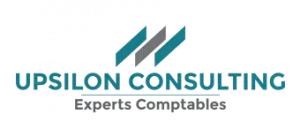Corporate income tax: accounting rules in force in Morocco
This article deals with the accounting rules in force in Morocco in relation to corporation tax.
This article is up-to-date with the accounting provisions in force in 2024.
Definition and concept of accounting rules in force in Morocco
Corporation tax (impôt sur les sociétés – IS) is a direct tax that applies to profits made by companies in Morocco.
Certain types of businesses, such as partnerships, may escape corporation tax. In this case, they are generally subject to income tax.
The General Tax Code (CGI) sets out the accounting rules for corporation tax. Moroccan law regularly updates these provisions to keep pace with economic and tax developments.
Basis of corporation tax: accounting rules in force in Morocco

The General Tax Code sets out the rules governing the basis of assessment for corporation tax. This code deals with the rules for taxing industrial and commercial profits.
Companies subject to corporation tax must keep accounts in accordance with current Moroccan standards.
All taxpayers must organise their accounts in such a way as to enable taxable profits to be determined. This is the basis for calculating corporation tax.
Companies must determine their taxable income by applying tax rules to their accounting results.
Tax base = Taxable income – Deductible expenses
Taxable incomes are those that the company earns in the normal course of its business.
Deductible expenses should respect two conditions:
- Firstly, the company must have incurred them in the direct interest of the company.
- Secondly, they must have a real and verifiable counterpart.
Companies subject to corporation tax must also comply with certain tax obligations, such as
- Firstly, filing an annual corporation tax return;
- Secondly, the payment of an installment of corporation tax throughout the tax year.
Accounting rules in force in Morocco: Specific rules
With regard to the accounting rules specific to corporation tax, the CGI provides in particular that:
Firstly, companies must keep a daybook and a general ledger. The accounting daybook must contain all the transactions carried out by the company. The general ledger must enable these transactions to be grouped by account. All the entries kept in these books should be booked with respect to Moroccan Generally Accepted Accounting Principles (GAAP).
Companies must draw up an annual balance sheet and a profit-and-loss account.
- The balance sheet must reflect the company’s assets and liabilities at the end of the financial year.
- while the profit and loss account must show the company’s income and expenses during the year.
A clear accounting link should be maintained and supported between these two statements and the compulsory books.
Tax audits are based on the accounting entries kept in the daybook and the general ledger. Any discrepancy between those and the annual statement could result in an accounting rejection. In this case, the law allows the Moroccan Administration to proceed with an administrative assessment of the taxable base.
In conclusion
The accounting rules in force in Morocco for corporation tax derive from the provisions of the General Tax Code. All companies falling within the scope of this tax must comply with it.
The aim of these rules is to ensure transparent and reliable accounting, which enables:
- determination of taxable income
- and accurate calculation of the corporation tax due by each company.
Read Also for more information : Corporate tax calculation in Morocco



